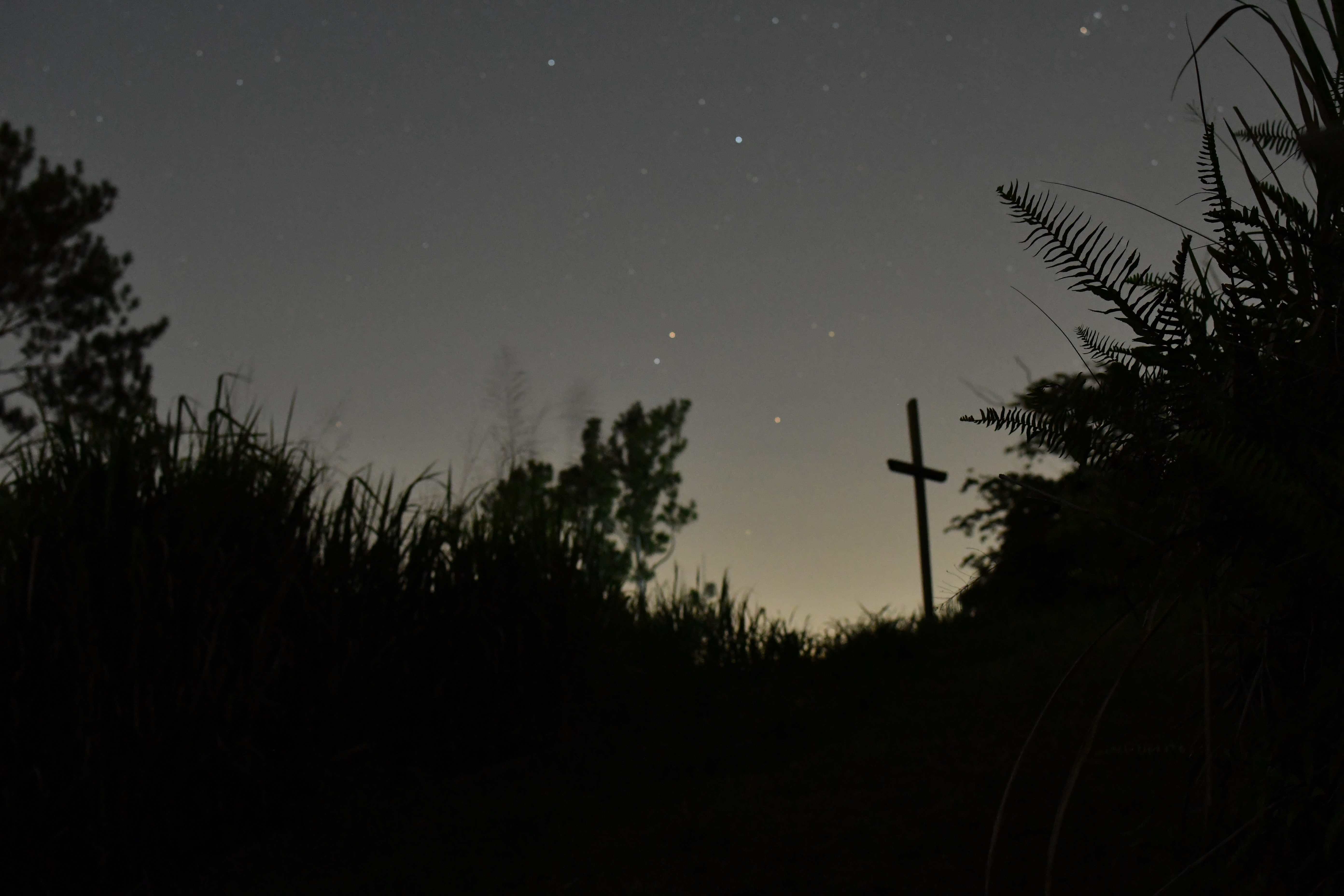Today, Holy Saturday, there are no “readings of the day,” but those of us attending the Easter Vigil will have more than enough Scripture to make up for it. Hearing the readings, we will see a beautiful picture of our salvation won for us in the Paschal Mystery, the apex of human history. This salvation was planned for us from the beginning of time. The readings of the Easter Vigil take us from the creation of the world through the Fall, the wanderings of the Israelites, the promise of the New Covenant, and the Incarnation and Resurrection.
This is a unique opportunity to recognize the providence of God. God had always planned to become man: He knew that we would fall, and He intended to draw us into an even greater reality than that of the Garden of Eden. The Fall did not “surprise” God. He created all things knowing what it would mean. He knew exactly what would unfold, and knew that He would bring good out of it all.
We can hear the wonders of God at the Easter Vigil and still doubt about God’s preparedness, or His competence: Why would He have created Adam and Eve for them to fall, or made Abraham’s descendants into a great nation for them to constantly break faith with Him? Why would He set up a new and definitive covenant knowing that there would be many who would spurn it? If He knew that this would happen, why did He allow it?
The glory of Easter gives us a glimpse into this, a glory at once confusing and illuminating. We cannot fully grasp the meaning of the death of Jesus Christ. It is hard to understand why God would want to suffer if He could have just created the world differently. But the Resurrection is difficult to argue with. The glory that Jesus shows us we can attain is blinding, more than we could ever deserve.
We may not understand why or how, but God did not make a mistake in ordering the world in the way that He did. The Vigil readings show us that He created a mosaic, full of striking turns and flashes of color that coalesce into something beautiful.
Hoy, el Sábado Santo, no hay “lecturas del día”, pero todos nosotros que asistimos a la Vigilia Pascual tendremos más que suficiente Escrituras para compensarlo. Al escuchar las lecturas, veremos un hermoso cuadro de nuestra salvación ganada para nosotros en el Misterio Pascual, culmen de la historia humana. Esta salvación fue planeada para nosotros desde el principio de los tiempos. Las lecturas de la Vigilia Pascual nos llevan desde la creación del mundo hasta la Caída, los caminos de los israelitas, la promesa de la Nueva Alianza, la Encarnación y la Resurrección.
Es una oportunidad única para reconocer la providencia de Dios. Dios siempre había planeado hacerse hombre: sabía que caeríamos y tenía la intención de atraernos a una realidad aún mayor que la del Jardín del Edén. La Caída no “sorprendió” a Dios. Creó todas las cosas sabiendo lo que significaría. Sabía exactamente lo que sucedería y sabía que sacaría algo bueno de todo ello.
Podemos escuchar las maravillas de Dios en la Vigilia Pascual y todavía dudar sobre la preparación de Dios, o Su competencia: ¿Por qué habría creado a Adán y Eva para que cayeran, o habría convertido a los descendientes de Abraham en una gran nación para que constantemente rompieran su fe en él? ¿Por qué establecería una alianza nueva y definitiva sabiendo que habría muchos que lo despreciarían? Si sabía que esto sucedería, ¿por qué lo permitió?
La gloria de la Pascua nos da una idea de esto, una gloria a la vez confusa y esclarecedora. No podemos comprender plenamente el significado de la muerte de Jesucristo. Es difícil entender por qué Dios querría sufrir si hubiera podido crear el mundo de manera diferente. Pero es difícil discutir la Resurrección. La gloria que Jesús nos muestra que podemos alcanzar es cegadora, más de la que jamás podríamos merecer.
Puede que no entendamos por qué o cómo, pero Dios no cometió un error al ordenar el mundo de la manera en que lo hizo. Las lecturas de la Vigilia nos muestran que Él creó un mosaico, lleno de giros sorprendentes y destellos de color que se fusionan en algo hermoso.
 David Dashiell is a freelance author and editor in Nashville, Tennessee. He has a master’s degree in theology from Franciscan University, and is the editor of the anthology Ever Ancient, Ever New: Why Younger Generations Are Embracing Traditional Catholicism.
David Dashiell is a freelance author and editor in Nashville, Tennessee. He has a master’s degree in theology from Franciscan University, and is the editor of the anthology Ever Ancient, Ever New: Why Younger Generations Are Embracing Traditional Catholicism.
Feature Image Credit: Gerardo Hernandez Carrasquillo, cathopic.com/photo/23308-cross-with-stars
